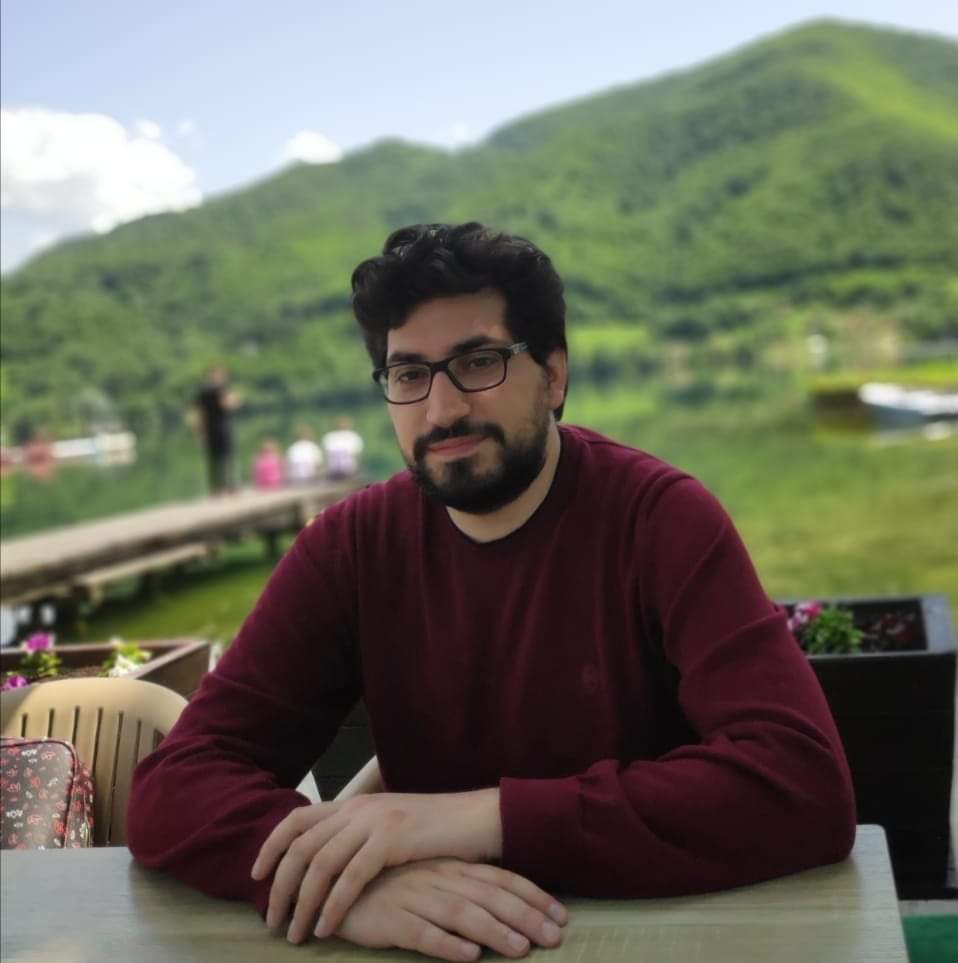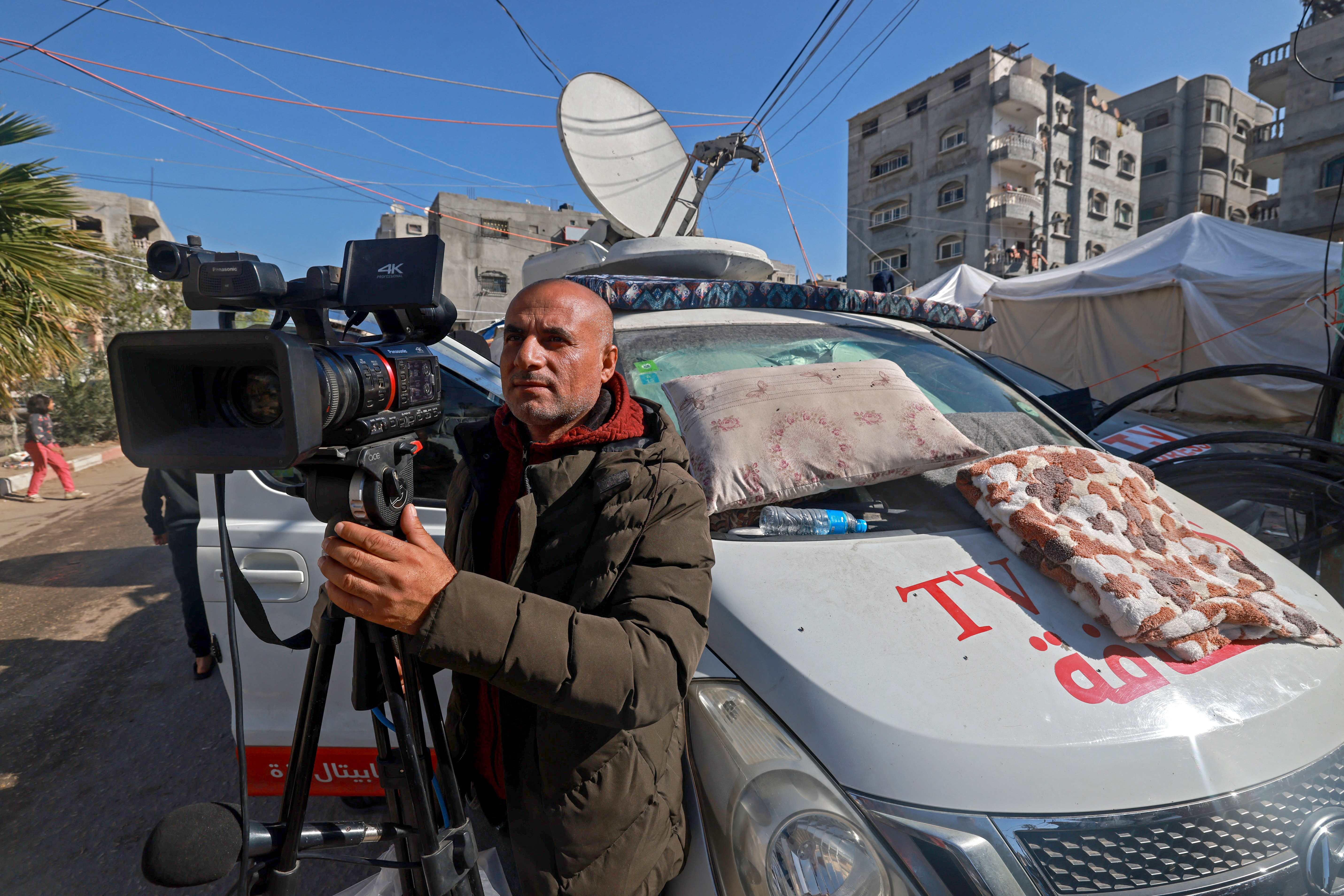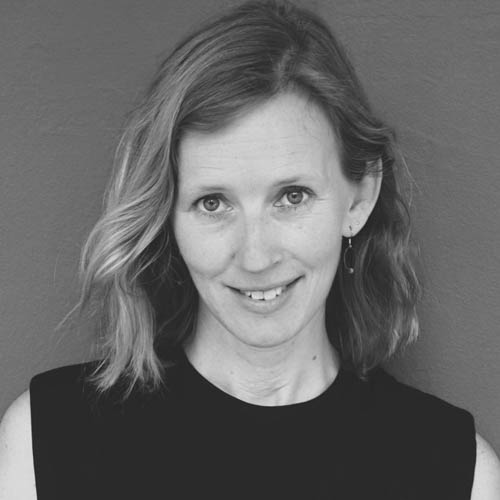كانت أدريان نيكول لوبلان تبلغ من العمر 25 عاما فقط عندما طلبت منها صحيفتها تغطية محاكمة شاب من بورتوريكو، اسمه جورج متهم في قضايا سرقة واتجار بالمخدرات. انخرطت المراسِلة في حي برونكس، حيث نشأ جورج: حي فقير من الأحياء الهارليمية التي تختفي وراء بريق وسائل الإعلام، يعج -في الصورة النمطية- بعتاة المجرمين والنشالين وأصحاب السوابق.
تتعرف الصحفية على أخت وصديقة جورج، وعلى مدى 12 سنة كاملة، تحول هذا التعارف إلى صداقة متينة سمح لنيكول أن تقترب من الناس ومن حياتهم الحقيقية: المخدرات، البؤس، الحب العنيف، الزيجات، تربية الأطفال، تاريخ السرقة، الموسيقى اللاتينية الضاجّة بالحنين للوطن الأم..
أصبحت الصحفية جزءًا من الحي، وشاهدا على تحولاته الكبرى، من عصر الازدهار وتدفق أموال المخدرات إلى مرحلة السجون والتمزقات العائلية. تروي أدريان قصصا غير منشورة لعائلة، تعبر بكثافة، عن قيم الظلم والظروف المزرية لطيف كبير من المهاجرين وجدوا أنفسهم فريسة للفقر والعنصرية.
بدل أن تكتب نيكول بضع صفحات تصف فيها المحاكمة بكلمات مهنية دقيقة، آثرت أن تؤلف كتاب random family كي يكون رواية واقعية غير متخيلة، تتقصى فيه جذور الجريمة، وأسبابها ودوافعها، ونتائجها العميقة، وتأثيراتها على البنية السكانية (1).
تفرغ من قراءة الكتاب وأنت لا تعرف أين يبدأ ي الصحفي وأين تنتهي الباحثة في العلوم الاجتماعية، ولا تكاد تقيم التمايز بين أدوات الصحفي (الوصف، الحدس، القدرة على الالتقاط...) وبين أدوات علم الاجتماع (التفسير، الاستنتاج، الاستنباط، تفكيك العلاقات...).
هل يمكن اعتبار كتاب نيكول، بحثا اجتماعيا أم عملا صحفيا؟ ومتى تلتقي السوسيولوجيا والصحافة ومتى يفترقان؟
الصحفي "مؤرخ متعجل"
في سنة 2017، زرت منطقة نائية جنوب المغرب (تنغير، تنجداد) لإنجاز تحقيق استقصائي حول صراع قبلي أفضى إلى قتلى واختطافات وتطاحنات قبلية دامية. استمعت إلى الشهادات، وحاولت أن أنقل أبعاد الصورة كاملة. بعد أسبوع، كان التحقيق يحتل الصفحة الأولى من الجريدة التي أشتغل بها، معتقدا أنه الرأي الفصل والحاسم في هذا الصراع، ومنتشيا بتلك المقدمة التي عادة ما تعجب مديري النشر "حقائق تنشر لأول مرة".
بعدها، كتب أستاذ بكلية الآداب بجامعة عين الشق بالدار البيضاء ردا طويلا من سبع صفحات، أرسله إلى الجريدة مستهلا مقالته: "الصحافة مهمة لكن السوسيولوجيا أهم". تحدثت المقالة/البحث عن جذور الصراع التاريخي بين القبائل حول الماء وحول الأرض (قبيلة تريد أن تقسم الأراضي بشكل أفقي، وقبيلة أخرى تريد أن تفعل ذلك بشكل عمودي). قدم الأستاذة أطروحة مختلفة، لا أزعم أنها أسست لمعرفة جديدة، لكنها أضاءت على التحقيق من زوايا لم يكن من الممكن أن أراها، مع العلم أنها هي المسبب الأساسي للتناحر القبلي.
هذه الطبيعة الاختزالية للصحافة، كانت، دائما، جزءًا من الصراع بين تيارين كبيرين، بين اتجاه مؤْتَمَن على التأطير الجماهيري مهما كانت وظيفة الإعلام، وهو تيار لا يصمد أمام إغراء وسائل الإعلام بمبرر نشر المعرفة على نطاق جماهيري، وبين توجه يرى في علم الاجتماع علما نخبويا يستدعي حيزا زمنيا وإخراجا فنيا مختلفا عن "سرعة الصحافة"، وبالتالي السماح للصحافة بأن تنشر الحقائق ولو مبتورةً من سياقاتها الثقافية والاجتماعية.
المعركة بين التيارين تجاوزت حدود، الكتابات والردود، بل تحولت إلى ما يشبه المدارس المستقلة بذاتها، خاصة بعد الثورة الطلابية على التقاليد الدوغولية سنة 1968. وقتها، انتقد المفكر الفرنسي ميشيل فوكو بشدة "تحول أساتذة علم الاجتماع إلى رجال مشهورين في الإعلام، يقدمون أنصاف الحقائق والأكاذيب الكاملة".
حين دعي عالم الاجتماع بيير بورديو إلى قناة تلفزية كي يقدم رؤيته لتأثير سكان الضواحي في الانتخابات الرئاسية الفرنسية، أطلق عبارته الشهيرة: "الصحفيون يريدون تقزيم الحقائق، وتكثيف تاريخ كامل من المآسي وبشاعة الاستعمار في أفريقيا في عشر دقائق، ثم في اليوم الموالي سيقولون: إن بورديو قال كل شيء" (2).
كان بورديو واعيا بأن الصحافة تشكل أداة محببة للسلطة لممارسة العنف الرمزي. وفي كتابه المدوي "التلفزيون وآليات التلاعب بالعقول"، شرح علاقة الدولة بالصحافة، لكن الذي يهمنا اليوم، هو طريقته الفريدة التي رسم بها الحدود بين الصحافة وعلم الاجتماع.
قبل بورديو، ساد الاعتقاد، خاصة لدى علماء الاجتماع الأمريكيين، المعروفين بجماعة "شيكاغو"، أنه لا مانع بأن يصبحوا نجوما في التلفزيون، وترسخت هذه الصورة، أكثر، مدفوعة بالصراع الإيديولوجي الحاد بين النظامين الرأسمالي والشيوعي. وُظِّفَت العلوم الإنسانية -بشكل مفرط- من طرف الصحافة؛ إما لبتر الحقائق أو لتبرير دراسات أو لدحض أطروحات اجتماعية.
ومع ظهور وسائل الإعلام، أصبح نشر الأبحاث على نطاق واسع ممكنا، حيث انقسم علم الاجتماع، على وجه التحديد، في فترة ما بعد الحرب بين مؤيدي العلوم الاجتماعية "المفيدة" وبالتالي يجب نشرها على أكبر نطاق، وتلك الخاصة بعلم الاجتماع المصنف نخبويا بشكل صارم (3).
يشرح سعيد بنيس، أستاذ السوسيولوجيا بجامعة محمد الخامس بالرباط، هذا التوتر بين حقلين ينهضان على الفكرة نفسها، وهي الحقيقة الاجتماعية قائلا: "لا بد من التمييز بين مستويين من الكتابة: الأولى أكاديمية، والثانية صحفية. فالأولى تتماشى مع السوسيولوجيا وتقتفي المصادر والمراجع والإحالات في أفق التوصيف والفهم والتفسير والتأويل بالارتكاز إلى منهج ومنهجية وإطار نظري لضبط المسافة الموضوعية مع الإشكالية. أما الثانية فهي كتابة تروم تقديم وجهة نظر أو استكشاف آراء أو تقديم خبر ومشاركته من زاوية متفردة وذاتية بالارتكاز إلى منهجية تستمد أدواتها وتقنياتها من تموقع مجتمعي. انطلاقا من هذا التمييز يصبح لزاما على الصحفي موازنة الوظيفة الاختزالية للصحافة مع فاعلية وجدوى المنهجية السوسيولوجية".
وكامتداد لهذه الأسئلة حول الاستخدامات المتقاطعة لعلم الاجتماع والصحافة، قد يكون من المفيد إجراء مقارنة منهجية للأدوات المختلفة المستخدمة في المجالين: المقابلة، الملاحظة، استخدام المصادر الإحصائية، واستطلاعات الاستبيان (استطلاعات الرأي)، واللجوء إلى "الكلمات العادية"، إلى الصور ...إلخ.
بين علم الاجتماع والصحافة تقاطعات كبرى منها بناء الحقيقة الموضوعية الاجتماعية، غير أن الصحفي "مؤرخ متعجل" كما يقول عبد الله العروي الذي اضطر إلى تأليف كتاب كامل عن حياته (استبانة) بمبرر أن الصحفيين ميالون للإثارة بينما المفكر في حقل العلوم الإنسانية ميال للدقة في حدها الأدنى على الأقل.
"بؤس" الرأسمال
منذ الثمانينيات من القرن الماضي زحفت الرأسمالية على مناحي الحياة، ولم يكن الإعلام بمنأى عن هذا التحول، فطغت قيم التنافسية والفعالية والشهوة والوهم على البعد الاجتماعي الذي زعم منظِّرو الليبرالية أنه جوهر الاقتصاد الرأسمالي.
فقدت الصحافة وظيفتها الفطرية في الإخبار والتثقيف، متأثرة بنهاية الثنائية القطبية، والاتجاه بوحشية نحو اقتصاد السوق، ومس هذا التغيير روح المهنة لصالح قياس متابعة الجمهور، المبيعات، حصة سوق الإعلانات ومزيد من الترفيه. بمعنى آخر أن المؤشر الكمي للربح صار هو الرهان الأساسي للصحافة.
هنا ارتابت العلوم الإنسانية من الصحافة. في أمريكا كما في فرنسا، حمل التقدميون مشعل السوسيولوجيا والأنثروبولوجيا وعلم النفس (وفي وقت لاحق السيميولوجيا مع رولان بارت)، وكانت العلاقة مع وسائل الإعلام موسومة بما يمكن وصفه بالروح النضالية ضد الاضطهاد والظلم والحروب، أي أنها تؤدي دورها في إحداث شرخ في السلطة.
يمكن أن يصبح السوسيولوجي صديقا للصحفي لكن "التدخل الإعلامي له مكانة غامضة في بيئتنا المهنية" كما يقول السوسيولوجي ميشيل كروزر. من الواضح أن مؤهلات عالم الاجتماع هي النقد وإهانة الحقائق السطحية انسجاما مع ورح العلوم الإنسانية. على هذا النحو يمكن للمرء أن يتهم عالم الاجتماع بـ "التعاون" مع هذا الكون الخاضع لقوانين الرأسمالية والقوى السياسية. ومع ذلك، وبوجود وسائل إعلام نبيلة يمكن أن يجد السوسيولوجي متنفَّسا ليكتب بعيدا عن سطوة القيم الليبرالية.
الصحفيون لديهم سمعة سيئة بين علماء الاجتماع، "قد تتعامل مع صحفي متمرس، ومتذوق جيد للقضايا في عمقها السوسيولوجي، ويمتلك أدوات تحليلية لا بأس بها، ويعرف تماما كيفية تسليط الضوء على المواضيع دون أن يَسقط في السطحية والاختزال، لكن في غالب الأحيان "تتعامل مع صحفيين ليسوا أذكياء، بهذا التعبير الملطف، أو أنك تقابل صحفيين كسالى وغير قادرين على البحث" (4).
خضوع الصّحافة المتزايد للمنطق التجاري له آثار مدمرة على المجتمع. في الواقع، بقدر ما يقوم الصحفيون، ببناء الواقع بنظارات مفصلة على المقاس مع ميل رأسمالي لترسيخ الإثارة وتشجيع السلوكيات التي تتوافق مع هذا المزاج، بقدر ما يحفرون هوة كبيرة بين الصحفيين والسوسيولوجيين.ونتيجة لذلك، فإنهم يثيرون في المجالات المختلفة التي يتوسطون فيها استراتيجيات جديدة تتمثل في مطابقة الممارسات الإنتاجية دائمًا للتوقعات الصحفية.
في العلاقة بين الصحافة والسوسيولوجيا، يحق لنا إذن أن نستدعي، على سبيل المثال، عمل هوارد بيكر الذي أظهر بوضوح إلى أي مدى يمكن للفن أن يكون حاضرًا فقط باعتباره "نتاجا جماعيا لشبكة من الوسطاء؛ بدءا من الفنان إلى الجمهور، بما في ذلك تاجر الأعمال الفنية وأمين المتحف والناقد الفني" (5). وهل تختلف الأشياء عندما يتعلق الأمر بالباحث في العلوم الاجتماعية؟ لا يمكن أن تنتشر هذه المعرفة بدون عدد من الوسطاء، والوسطاء الأكثر فعالية اليوم هم الصحفيون الذين يساعدون في خلق القيمة الاجتماعية للنظريات العلمية.
إن الاعتراف بالصحافة كوسيط لـ "تبسيط العلوم الاجتماعية" واحتضانها، لا يعني، إطلاقا، تقويض الاستقلالية الفكرية للعمل الاجتماعي، بل يعني فهم الظروف الاجتماعية التي تجعله ممكنا.
أخيرا، مقابل أطروحة التوتر، فإن إلقاء نظرة بسيطة على البيانات الإحصائية المتعلقة باستهلاك السلع الثقافية يكفي لفهم أنه كلما قرأ الفرد بانتظام مجلة أو استمع إلى محطة إذاعية تُفسح المجال لأخبار العلوم الاجتماعية؛ كان هدفه أن يكون مشتريا وقارئا لنصوص العلوم الاجتماعية أيضا. وبهذا المعنى، وبعيدا عن تشتيت الانتباه عن قراءة الأبحاث الاجتماعية، فإن تعميمها يمكن أن يساعد المهتمين بمجال المعرفة على زيادة استثماراتهم، هذا هو منطق الرأسمال في العلوم الإنسانية الحديثة أيضا وهو منطق تحبه الصحافة على كل حال.
مراجع:
2- Goulet V. 2003, « Pierre Bourdieu et la télévision , pp. 73- 74
3- https://journals.openedition.org/questionsdecommunication/7300
4- https://www.persee.fr/doc/reso_0751-7971_1992_num_10_51_1926
5- https://laviedesidees.fr/Sociologie-du-journalisme.html










![Palestinian journalists attempt to connect to the internet using their phones in Rafah on the southern Gaza Strip. [Said Khatib/AFP]](/sites/default/files/ajr/2025/34962UB-highres-1705225575%20Large.jpeg)






























